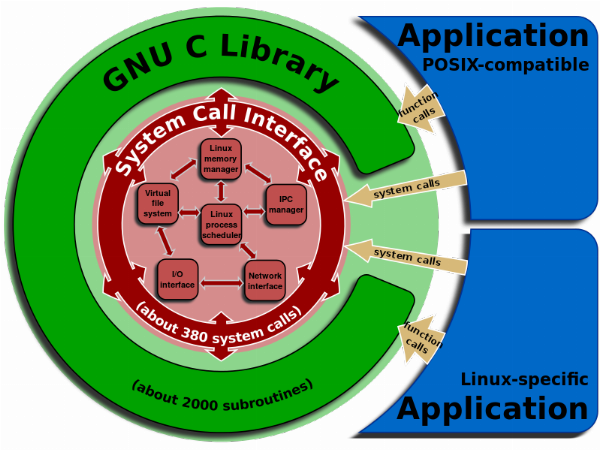Glibc Benchmarks

The GNU C Library project provides the core libraries for the GNU system and GNU/Linux systems, as well as many other systems that use Linux as the kernel. These libraries provide critical APIs including ISO C11, POSIX.1-2008, BSD, OS-specific APIs and more. This test profile makes use of Glibc's "benchtests" integrated benchmark suite.
To run this test with the Phoronix Test Suite, the basic command is: phoronix-test-suite benchmark glibc-bench.
Project Site
gnu.orgSource Repository
sourceware.orgTest Created
29 June 2017Last Updated
18 May 2024Test Maintainer
Michael LarabelTest Type
ProcessorAverage Install Time
2 Minutes, 8 SecondsAverage Run Time
17 SecondsTest Dependencies
C/C++ Compiler Toolchain + BisonAccolades
100k+ Downloads + 5k+ Public Benchmark ResultsSupported Platforms
** Data based on those opting to upload their test results to OpenBenchmarking.org and users enabling the opt-in anonymous statistics reporting while running benchmarks from an Internet-connected platform.
*** Test profile page view reporting began March 2021.
Data updated weekly as of 16 January 2025.
Suites Using This Test
Performance Metrics
Analyze Test Configuration:glibc bench 1.0
Benchmark: ffsll
OpenBenchmarking.org metrics for this test profile configuration based on 4,157 public results since 1 December 2018 with the latest data as of 7 March 2024.
Based on OpenBenchmarking.org data, the selected test / test configuration (glibc bench 1.0 - Benchmark: ffsll) has an average run-time of 2 minutes. By default this test profile is set to run at least 3 times but may increase if the standard deviation exceeds pre-defined defaults or other calculations deem additional runs necessary for greater statistical accuracy of the result.
Based on public OpenBenchmarking.org results, the selected test / test configuration has an average standard deviation of 0.7%.
Does It Scale Well With Increasing Cores?
No, based on the automated analysis of the collected public benchmark data, this test / test settings does not generally scale well with increasing CPU core counts. Data based on publicly available results for this test / test settings, separated by vendor, result divided by the reference CPU clock speed, grouped by matching physical CPU core count, and normalized against the smallest core count tested from each vendor for each CPU having a sufficient number of test samples and statistically significant data.
Tested CPU Architectures
This benchmark has been successfully tested on the below mentioned architectures. The CPU architectures listed is where successful OpenBenchmarking.org result uploads occurred, namely for helping to determine if a given test is compatible with various alternative CPU architectures.